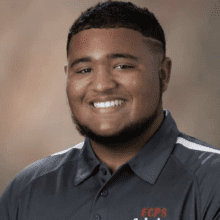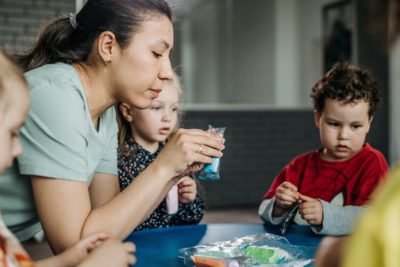
Our schools and students are back for another year of learning. And even with all of the politics surrounding education, the heart of our school system is still beating. Especially the hearts that teach our young students. In order to have a strong state, it is imperative that we have a sound basic education for our state’s future. We must ensure that each student within our state is equipped to function within our society and move our state forward. To make sure this occurs, we must begin with early childhood education.
In North Carolina in 2021, there were 599,142 children birth to kindergarten, the U.S. Census Bureau estimated. This represented about 26% of all children in our state under the age of 18. This is a large number of children in a specific age range, and it’s even larger when you consider that only 213,241 children were enrolled in child care programs in December of that year. The pandemic has taken a toll on those programs, with many struggling to find teachers as pandemic relief funds run out.
Child care allows for parents to go to work or further their education while knowing that their children are not only being nurtured but also being taught critical skills for later years in their schooling. Although this is important for families, one of the major reasons kids from birth through kindergarten aren’t enrolled in child care programs is due to yearly costs. The absence of sufficient early care and education access impacts children’s learning later on.
Early childhood is important for third grade reading, which is when students go from “learning to read to reading to learn.” NC Child reports that as of May 2022 only 45% of students were reading proficiently in third grade.
In May of 2021, Governor Cooper signed House Bill 82 into law, which required all public schools to offer school learning recovery and enrichment programs during the summer. Although these enrichment programs brought in a multitude of interventionists with a specific set of skills, it is important to find preventive measures for these growing needs. That’s where the Early Childhood Action Plan comes in.
The Early Childhood Action Plan (ECAP) was the result of an executive order issued by Governor Cooper in 2018. This order challenged our State Department of Health and Human Services and the Early Childhood Advisory Council (ECAC) to lead the development of a statewide plan. With a clear vision, a bold plan, and insight from over one thousand North Carolinians, the plan provides a way to analyze how the state can do better by young children by 2025. This plan has a clear roadmap and vision to achieve better outcomes for children birth through kindergarten and up to eight years olds (third grade students). This plan is geared to ensuring ten main goals:
- Reading at Grade Level
- On Track for School Success
- High-Quality Early Learning
- Safe and Secure Housing
- Safe and Nurturing Relationships
- Permanent Families for Children in Foster Care
- Social-Emotional Health and Resilience
- Food Security
- Preventive Health Services
- Healthy Babies
Since ECAP came out, the state hasn’t said much about its progression nor have they produced recent numbers and figures on the dashboard meant for tracking progress.
Early childhood education is an extraordinary entity, and it’s extraordinarily important. Early childhood education and education in general is the very thing which all of our communities are built upon.
When forecasting the future of North Carolina and how we will continue producing highly qualified individuals for our workforce we need to keep investments for early childhood education in the forefront of our daily work. Ensuring that each child from birth through kindergarten and beyond has a sound basic education is vital to the functionality of our state.




